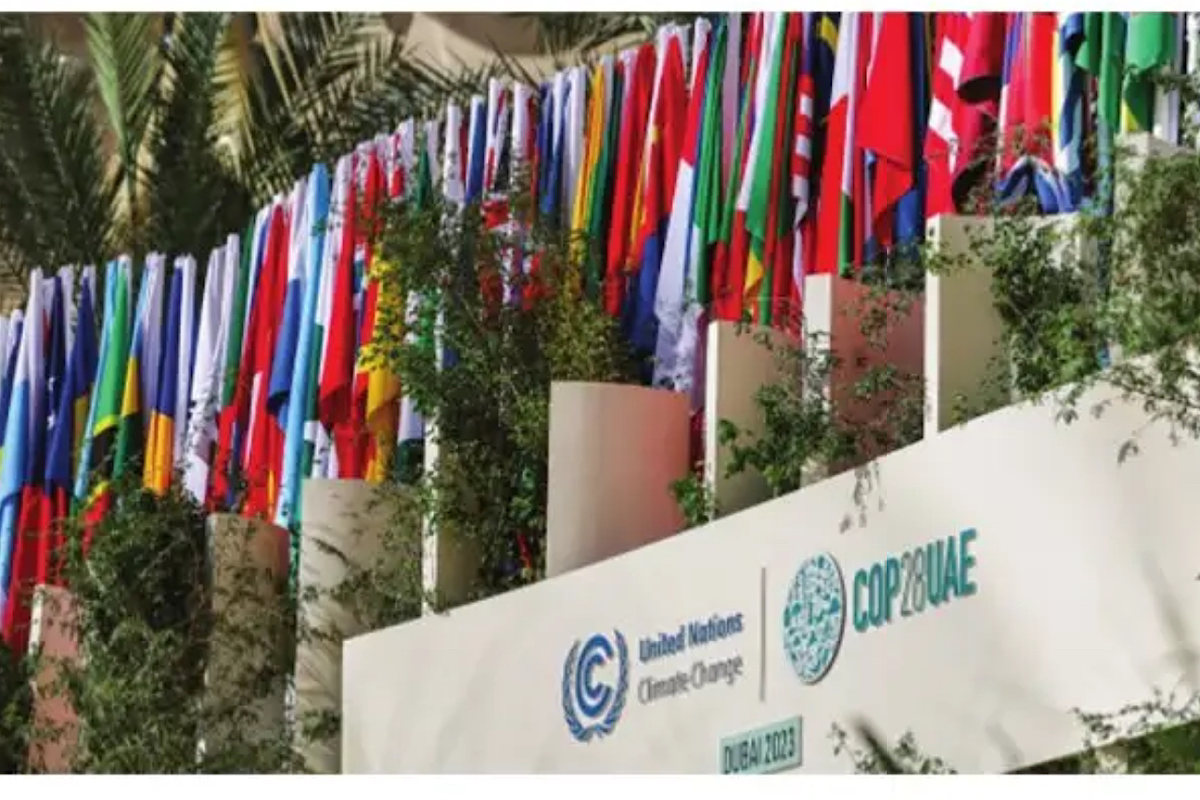Those who have high hopes from the 28th Climate Summit at Dubai may be motivated by making the most of the opportunities offered by the most important annual gathering on this issue of critical importance. But they must also contend with the disappointing record of previous climate summits in ensuring that the roadmap for keeping GHG emissions below widely accepted limits is followed.
Most recent data indicates that the world is falling far behind in achieving the emission reductions needed for keeping the increase in average temperature below the limit of 1.5 degrees C compared to pre-industrial levels. Clearly a significant paradigm shift in international efforts regarding climate change mitigation and adaptation are needed if life-nurturing conditions of our planet are to be protected and catastrophic harm to humanity and other forms of life is to be avoided.
The challenge of climate change can be best confronted and effectively tackled if a much more broad-based effort is made on the basis of a holistic understanding. Narrow approaches of considering various important issues in isolation do not take us very far in real life. Take the issue of wars and the weapons race. There is a growing realisation that if the GHG emissions and overall pollution caused by wars, war preparations, arms and ammunition industry and the military-industrial complex are considered together, this is perhaps the biggest single avoidable source of pollution.
The involvement of fossil fuels in all this is very high. Yet the prevention and avoidance of war, the search for a future without wars, the avoidance of the arms-race and a reduction in the role of the military-industrial complex have not yet become integral parts of the climate discourse or of climate summits. This is just one part of the climate discourse having a narrow vision. Let us look at this issue in a different but related context.
The most important aim of tackling climate change and related serious environmental problems (about a dozen) is ultimately to protect the basic lifenurturing conditions of our planet which today are badly threatened by the. Let us assume for a moment that sincere and well-planned efforts for this are actually pursued for about two decades with great success. However after all this, if a nuclear war breaks out, the gains made during could be lost in just two days, or perhaps even in just two hours.
This shows how important it is to bring together environmental and peace issues and to integrate peace and disarmament efforts into climate change mitigation efforts to make them truly broad-based. In fact while the climate change issue in itself is undoubtedly very important, if we look at what humanity is trying to achieve, the basic task here is protecting life-nurturing conditions of our planet. Elimination of weapons of mass destruction is also an essential part of the broader efforts of protecting such conditions.
Hence these two issues of great importance should be taken up together in international summits whose objectives should be more broadly defined in terms of protecting life-nurturing conditions of our planet. In addition there is the important challenge of integration of justice concerns with climate change concerns. Just a little before COP 28, Oxfam GB and Stockholm Environment Institute have collaborated to bring out an important report on the highly unequal sources of global emissions. This report says that the richest 10 per cent of the global population accounts for as much as 90 per cent of the annual carbon burden. If we add to this the historical reality of the early industrializing countries contributing so much more to climate change, the unequal sources of this problem become even more prominent.
Yet it is one of the cruel ironies of our times that it is some of the poorest communities in some of the poorest countries who will bear the heaviest burden of climate change. Checking this injustice should be one of the integral parts of the world’s response to climate change, but the contributions in this context so far have been meager and tardy. When in addition one sees how often the rules and practices of international trade, debt, patents, investment, tax and tariffs are used against the poorer continues and the people living there, then the injustice against the poor appears in even more stark terms.
The fact that global inequalities have been increasing at a fast pace in times of such serious problems as climate change would indicate that the rich and the powerful of the world appear to be more interested in fortifying their own positions instead of coming to the help of the most vulnerable people. In a recently published futuristic novel, ‘A Day in 2071’, this writer has in fact presented a warning of where such trends, if unchecked, can take the world in about five decades or so.
Clearly then there is a strong case for taking corrective action before it is too late and a promising start can be made by integrating the climate change agenda much more closely with justice and peace concerns. Such a climate change agenda will be capable of achieving the enthusiastic support and involvement of people in a much bigger way. What is more, this can point the way for a wider integration of justice, peace and environment protection concerns at other levels too, contributing to the creation of a safer and better world in many ways.
(The writer is Honorary Convener, Campaign to Save Earth Now. His recent books include Planet in Peril, Protecting Earth for Children and Man over Machine.)












